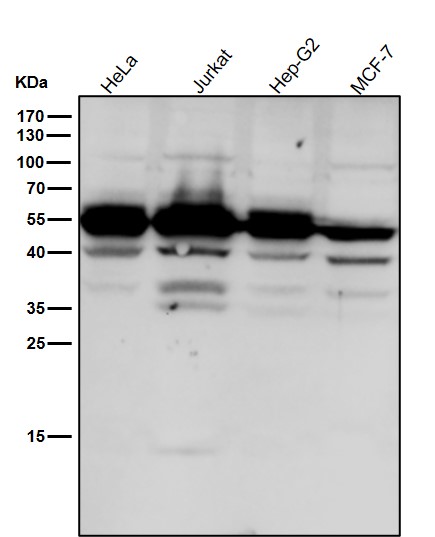
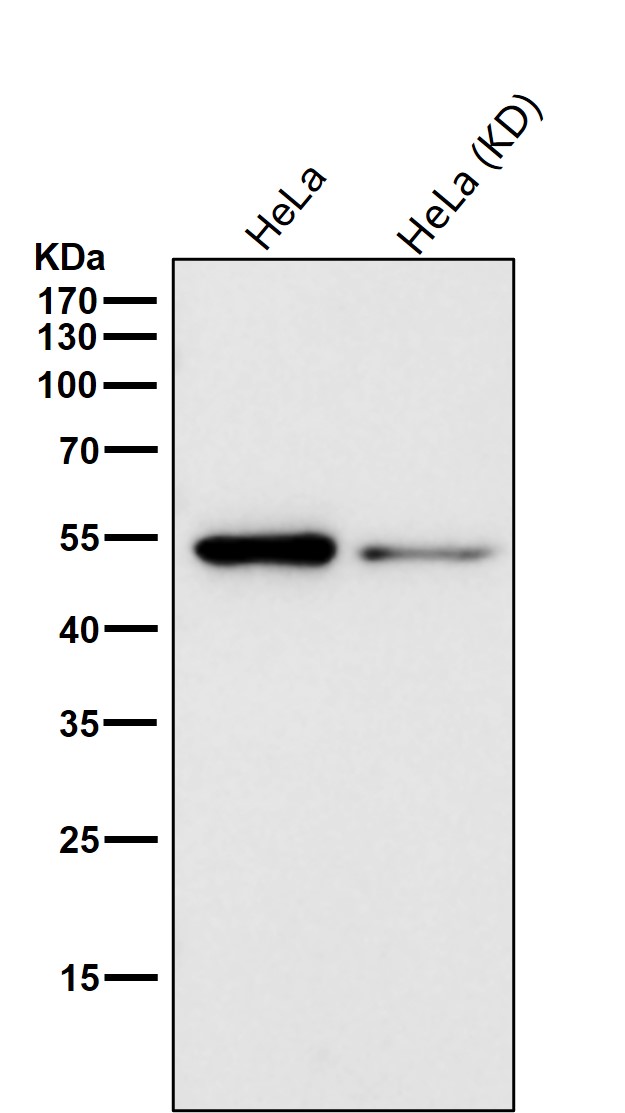
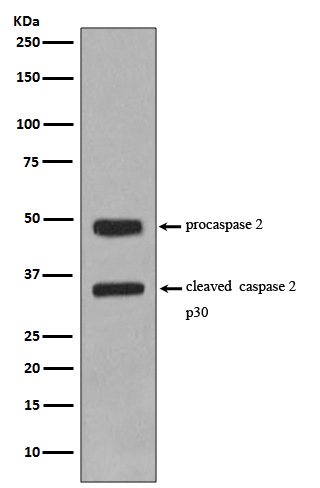
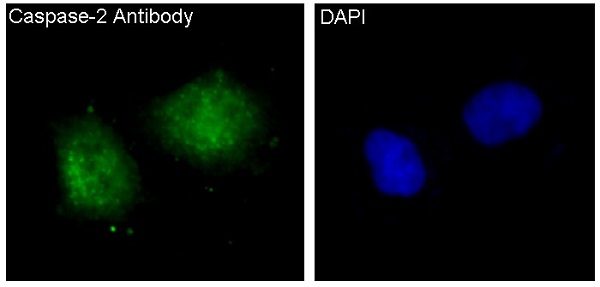
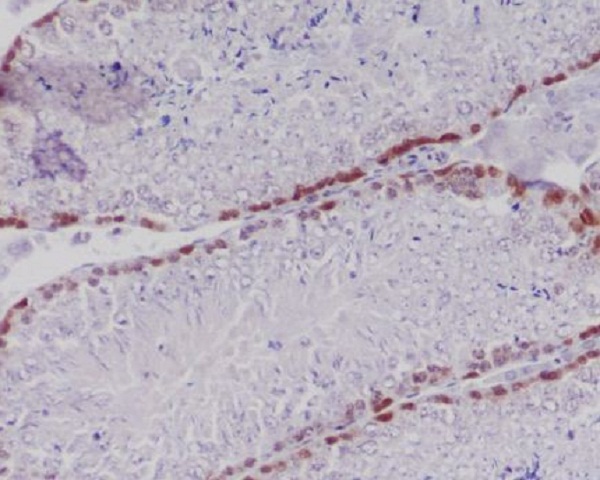
| WB | 咨询技术 | Human,Mouse,Rat |
| IF | 咨询技术 | Human,Mouse,Rat |
| IHC | IHC:1/100-1/200;IHF:1/50-1/200 | Human,Mouse,Rat |
| ICC | 1/50-1/200 | Human,Mouse,Rat |
| FCM | 1/20-1/100 | Human,Mouse,Rat |
| Elisa | 咨询技术 | Human,Mouse,Rat |
| Aliases | Caspase-2; Caspase 2; Caspase2; CASP-2; Neural precursor cell expressed developmentally down-regulated protein 2; NEDD-2; Protease ICH-1; CASP2; ICH1; NEDD2;Caspase 2 |
| WB Predicted band size | Calculated MW: 51 kDa ; Observed MW: 48,30,12 kDa |
| Host/Isotype | Rabbit IgG |
| Antibody Type | Primary antibody |
| Storage | Store at 4°C short term. Aliquot and store at -20°C long term. Avoid freeze/thaw cycles. |
| Species Reactivity | Human,Mouse,Rat |
| Immunogen | A synthesized peptide derived from human Caspase 2 |
| Formulation | Purified antibody in PBS with 0.05% sodium azide,0.05% BSA and 50% glycerol. |
+ +
以下是关于Caspase-2抗体的3篇代表性文献的简要整理:
---
1. **文献名称**:*Caspase-2: The orphan caspase*
**作者**:Kumar S.
**摘要**:该综述总结了Caspase-2的分子结构、激活机制及功能,强调其作为凋亡启动酶的作用,并讨论了相关抗体在检测其前体及活化片段中的应用。
2. **文献名称**:*Caspase-2 is required for DNA damage-induced apoptosis in human cancer cells*
**作者**:Villunger A. et al.
**摘要**:研究通过Caspase-2特异性抗体(如Western blot和免疫沉淀)证明其在DNA损伤诱导的癌细胞凋亡中的关键作用,抗体验证了酶活性与剪切形式的关联。
3. **文献名称**:*Caspase-2-mediated cleavage of Mst1 regulates neuronal death*
**作者**:Hardwick J.M. et al.
**摘要**:利用Caspase-2抗体在神经元模型中揭示其通过剪切Mst1蛋白调控细胞死亡,抗体特异性验证为研究其神经退行性疾病机制提供工具。
---
以上文献涵盖Caspase-2的基础机制、癌症及神经疾病中的功能研究,相关抗体多用于检测蛋白表达、活性形式及相互作用。建议结合具体实验需求(如物种、应用场景)进一步筛选抗体文献。
Caspase-2. a member of the cysteine-aspartic protease (caspase) family, plays a multifaceted role in apoptosis, genomic stability, and cellular stress responses. As one of the most evolutionarily conserved caspases, it functions as an initiator caspase, activated through dimerization and proteolytic cleavage. Caspase-2 is involved in both extrinsic and intrinsic apoptotic pathways, mediating mitochondrial outer membrane permeabilization (MOMP) and cleaving downstream effector caspases (e.g., caspase-3/7). Beyond apoptosis, it regulates cell cycle checkpoints, DNA damage repair, and metabolic homeostasis, linking it to cancer, neurodegenerative diseases, and aging.
Caspase-2 antibodies are essential tools for studying its expression, activation, and localization. These antibodies typically target specific epitopes, such as the N-terminal prodomain (containing a caspase recruitment domain, CARD) or the C-terminal catalytic subunit. Applications include Western blotting, immunohistochemistry, and flow cytometry to detect full-length (inactive) or cleaved (active) forms. Researchers use them to explore caspase-2's role in apoptosis under conditions like chemotherapy, radiation, or oxidative stress. However, challenges remain due to overlapping substrate specificities with other caspases and low basal expression levels in some tissues. Validation via knockout controls or activity assays is critical to ensure antibody specificity. Commercial caspase-2 antibodies vary in host species, clonality, and conjugation, enabling flexible experimental designs. Ongoing research aims to clarify its context-dependent functions and therapeutic potential in disease models.
×